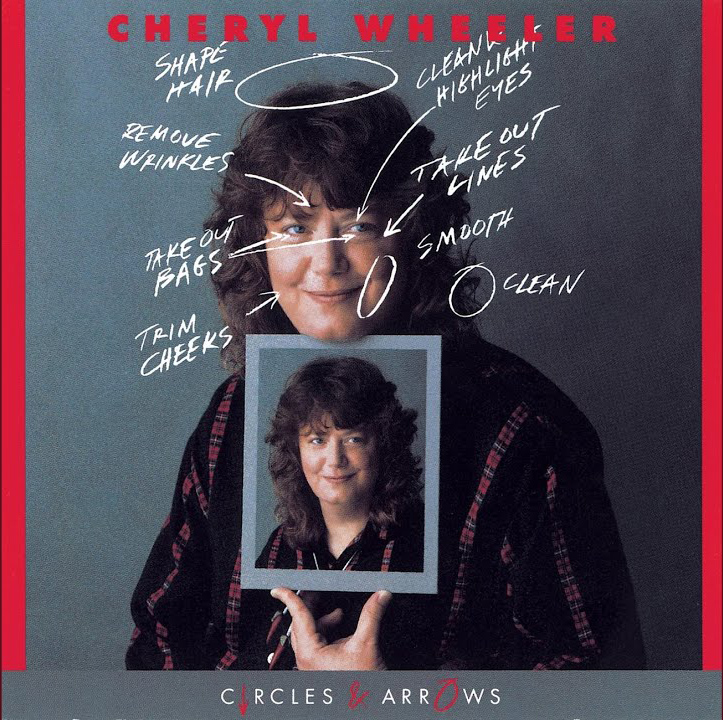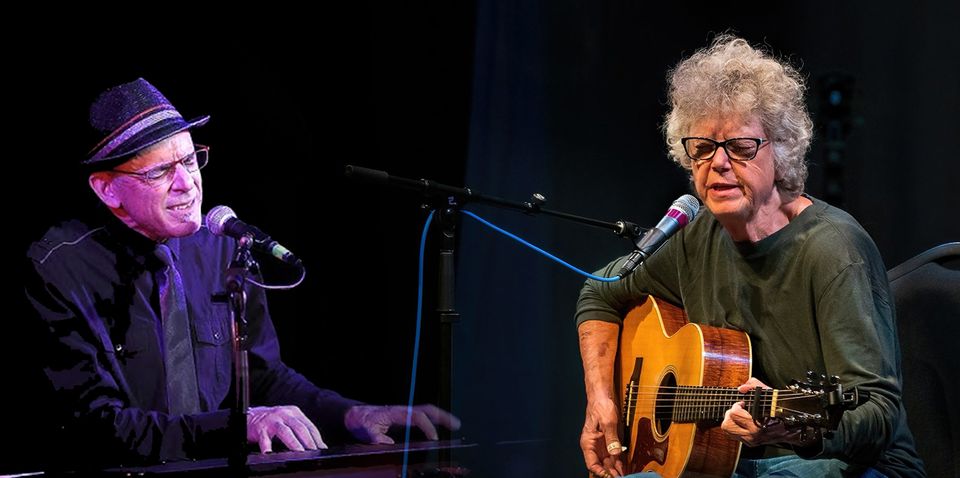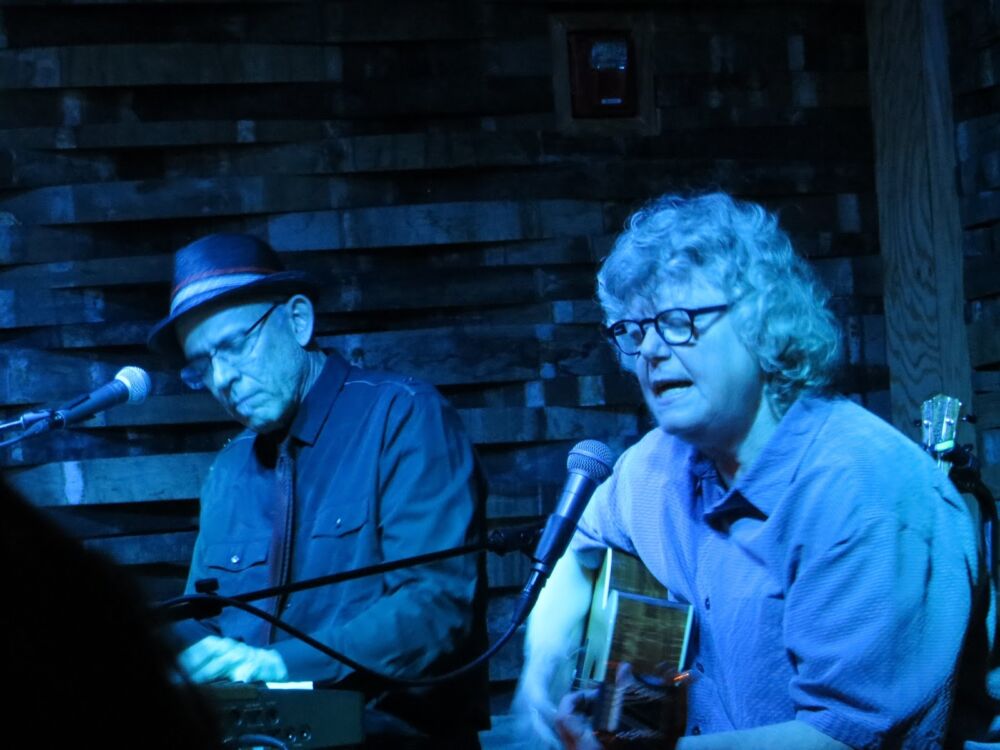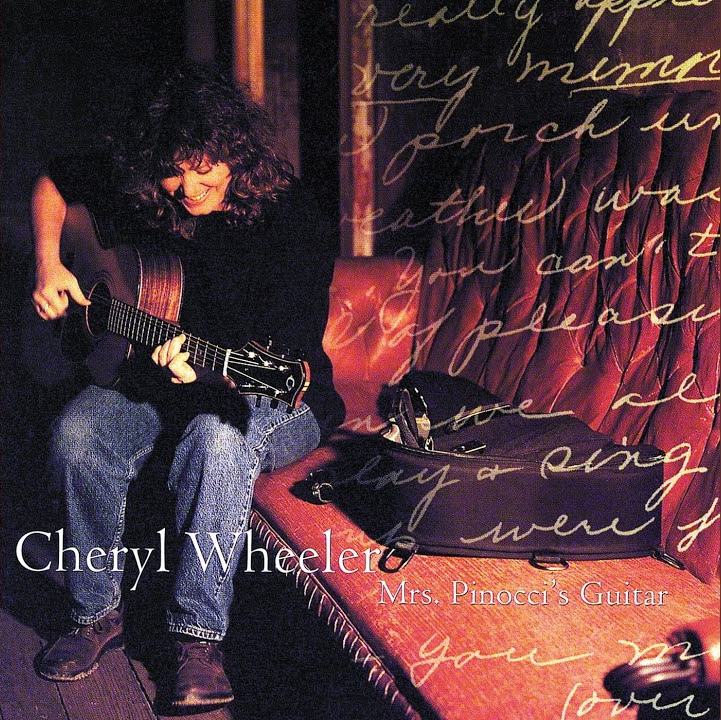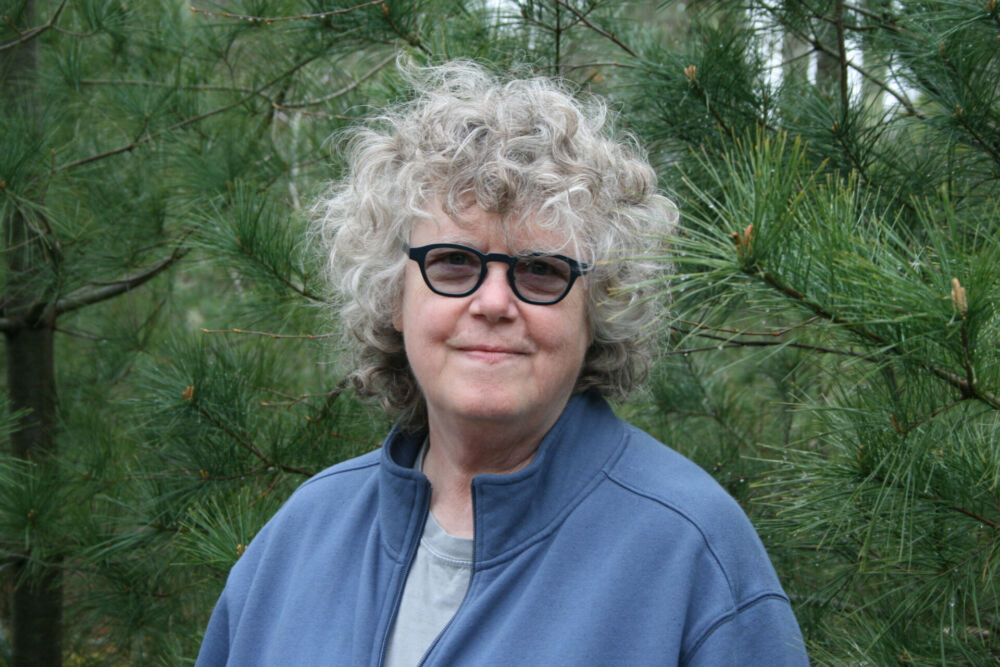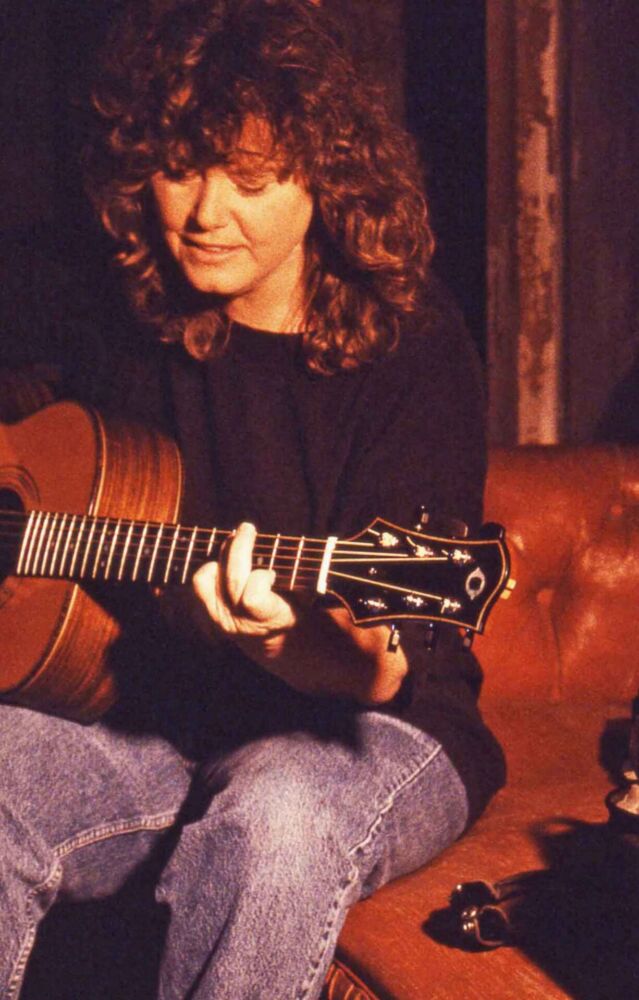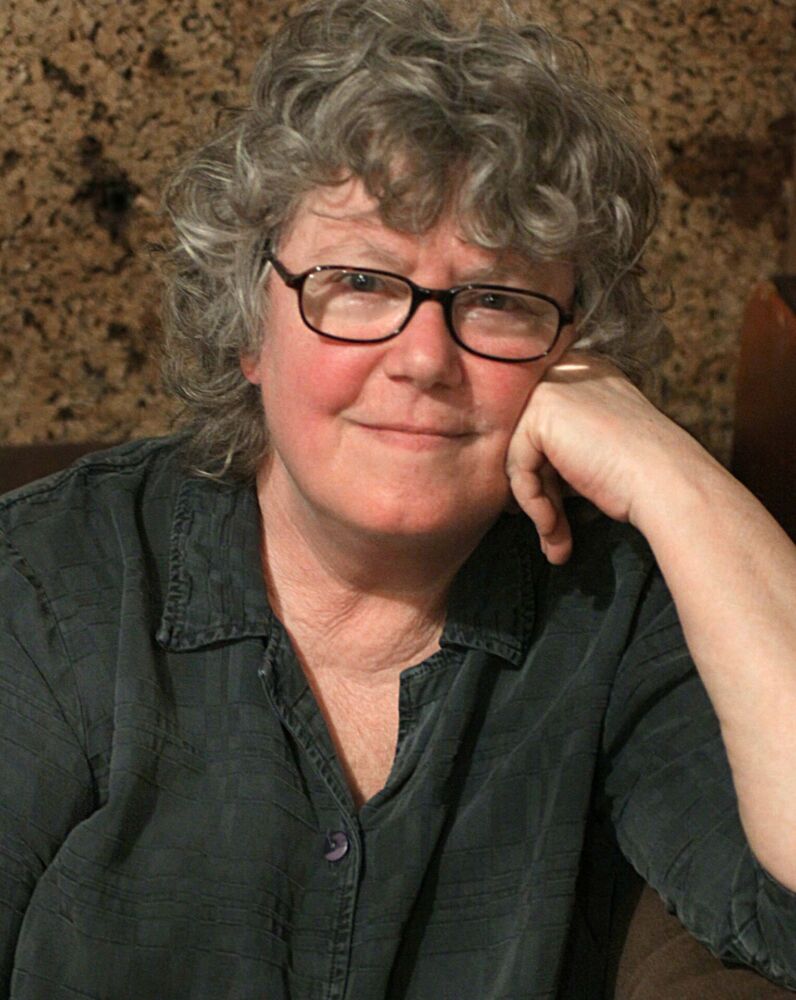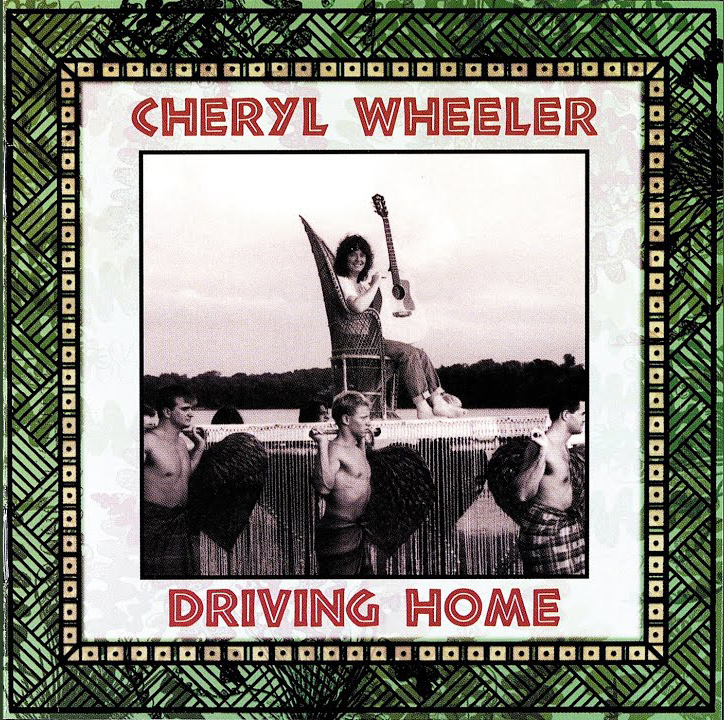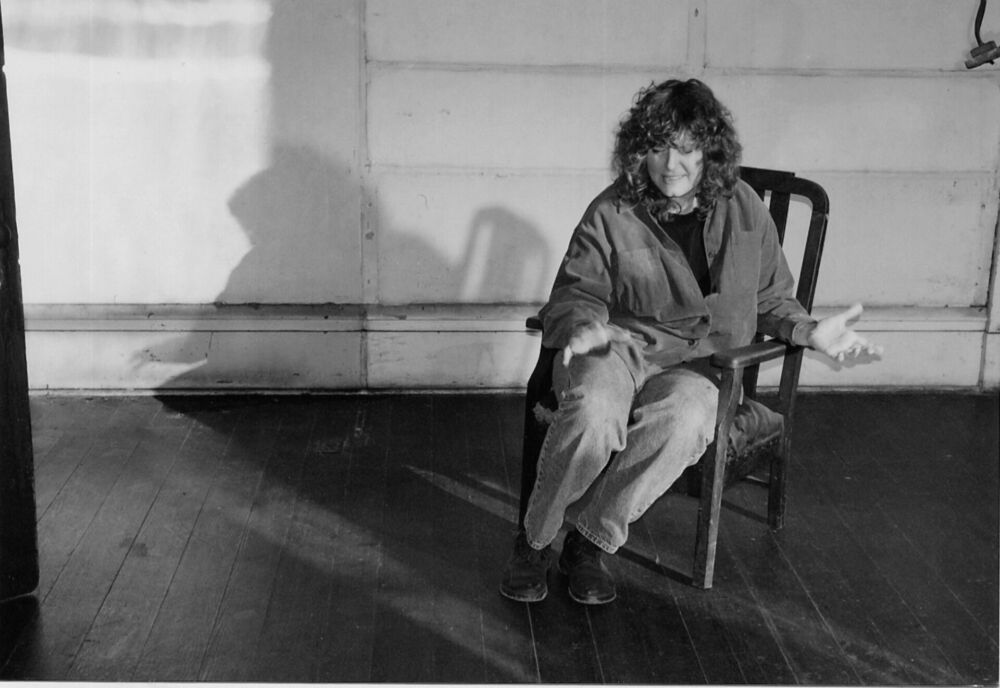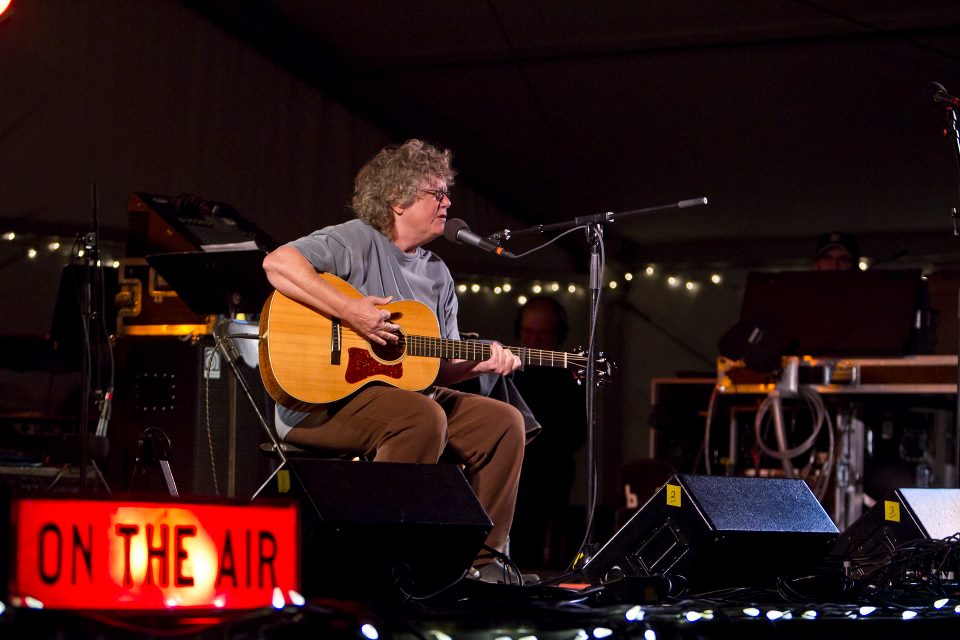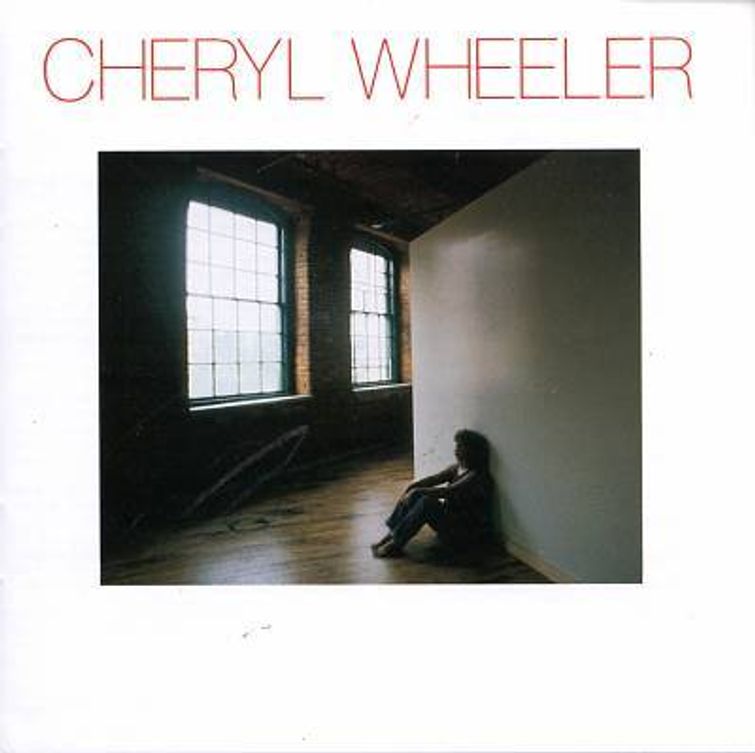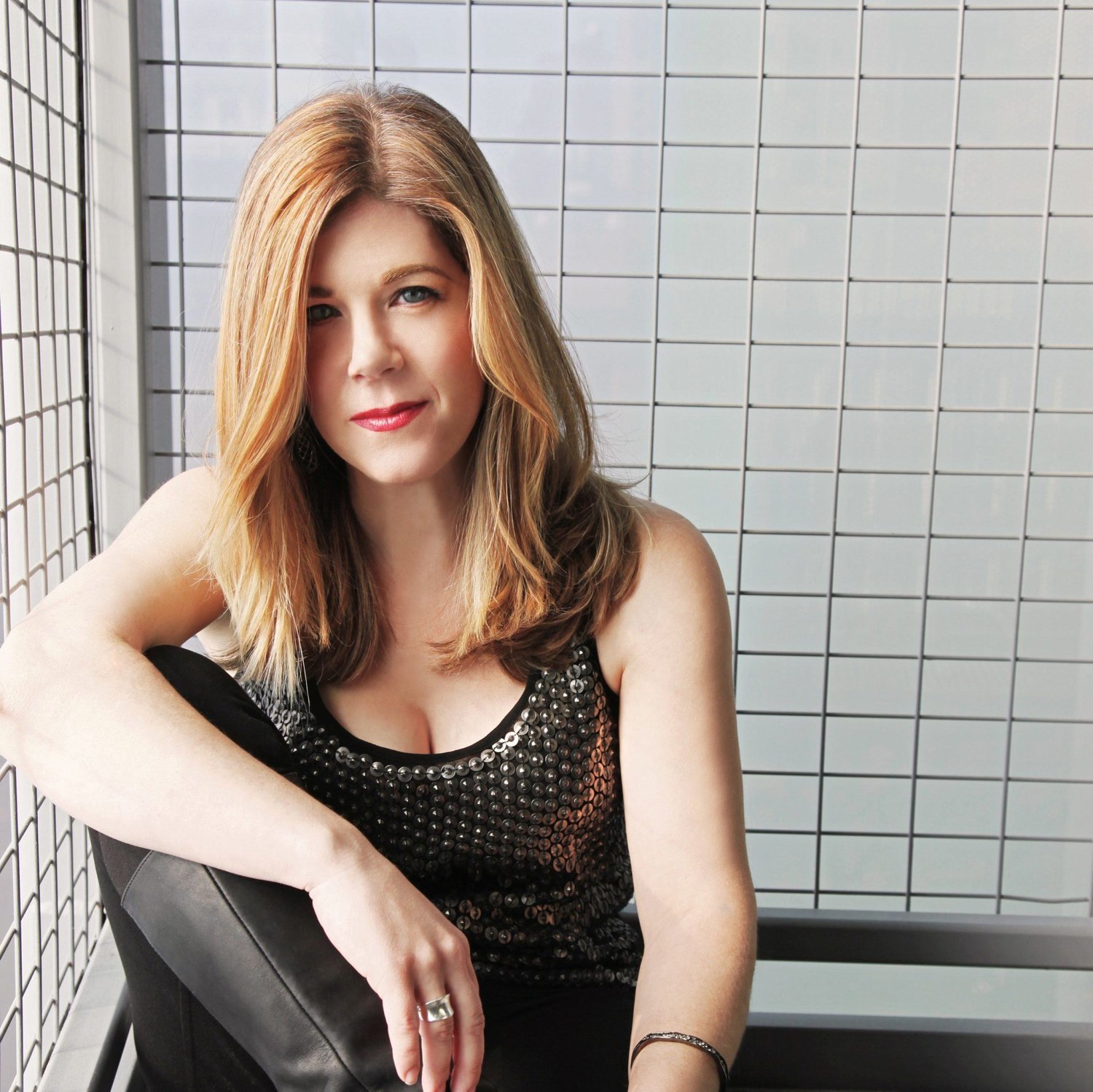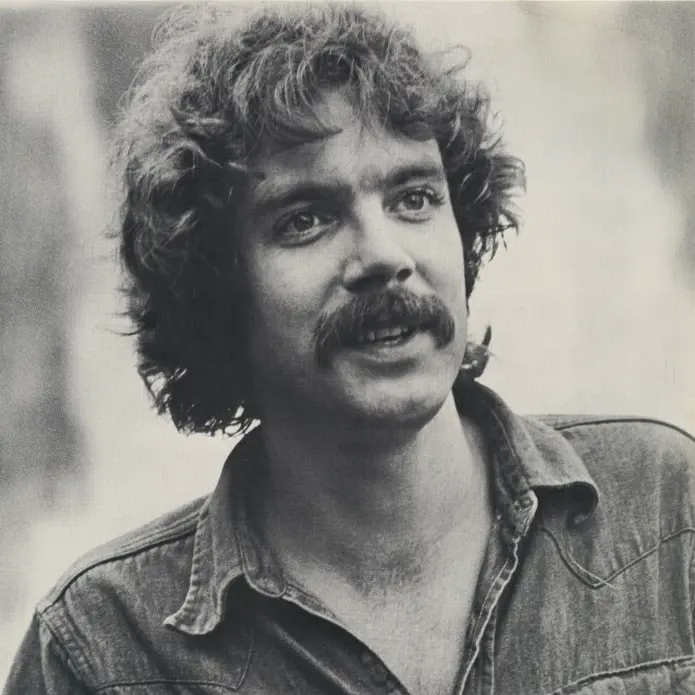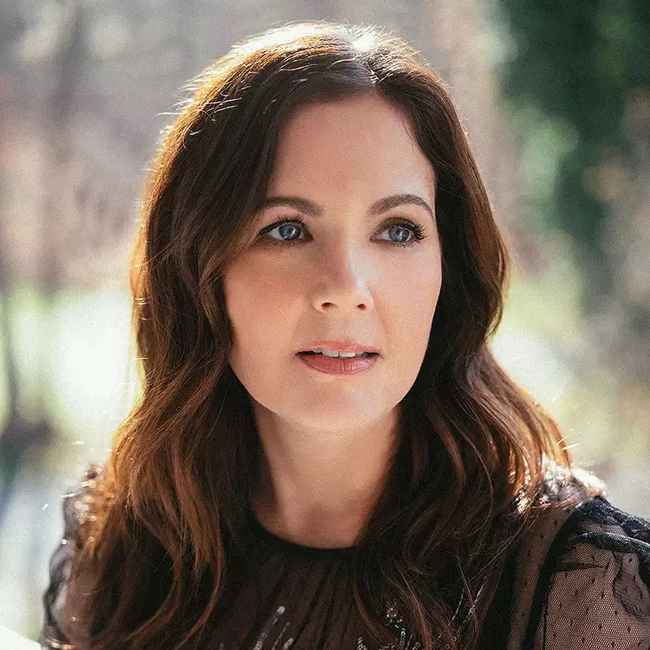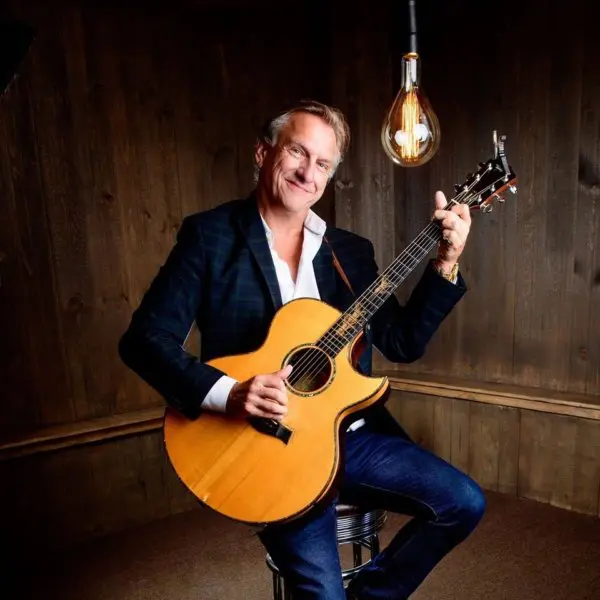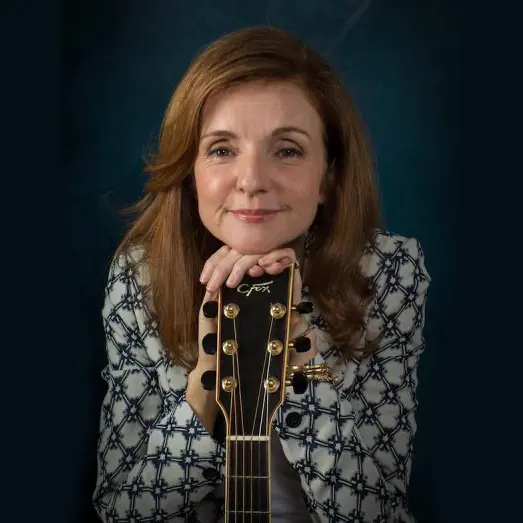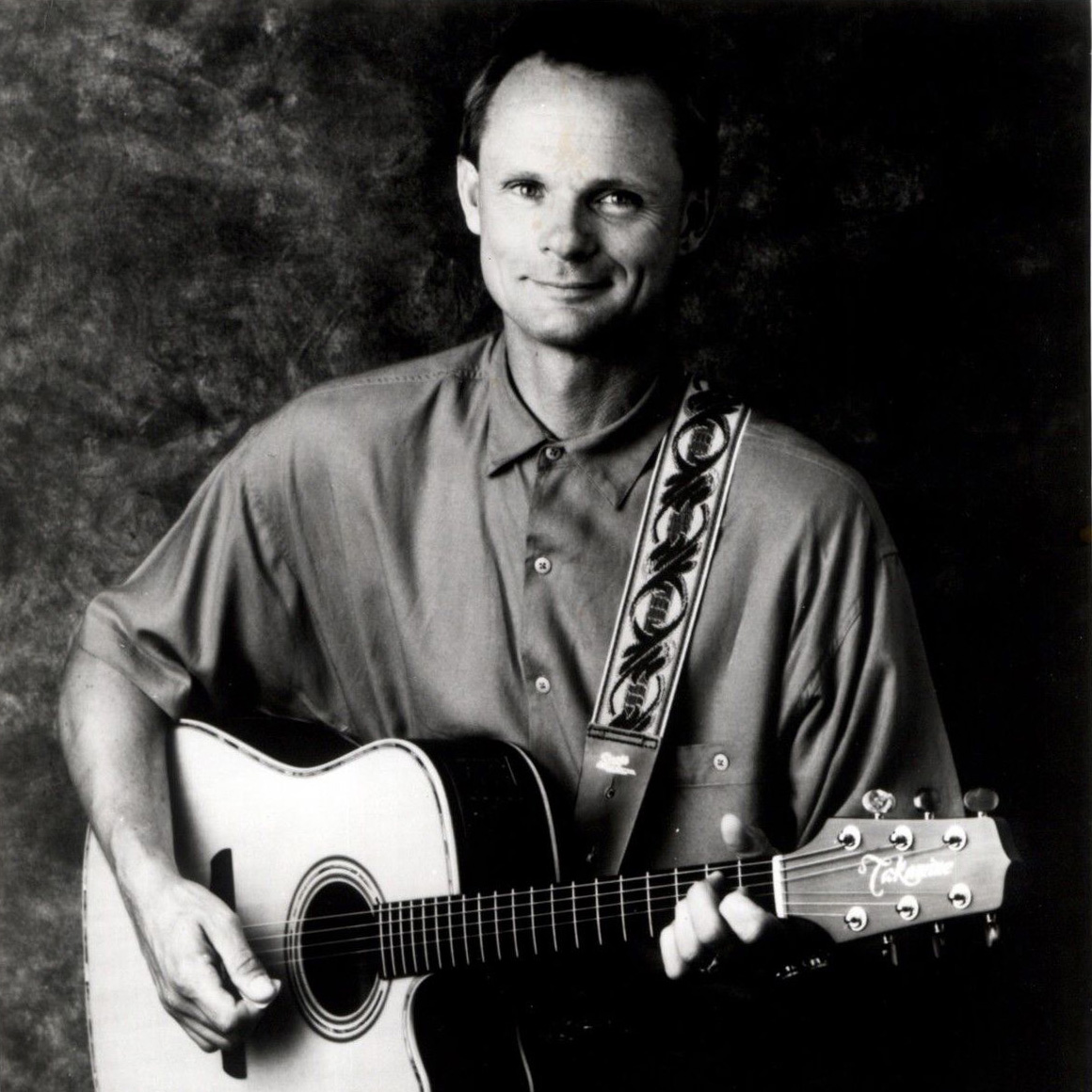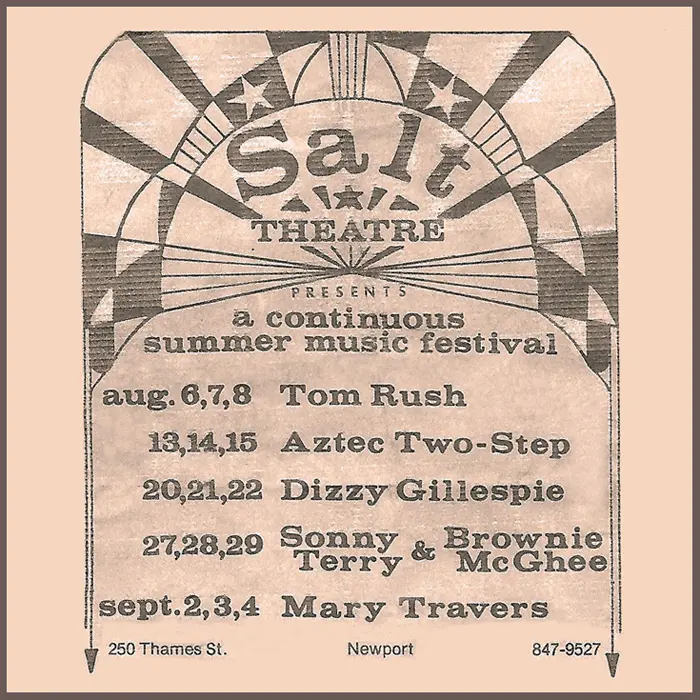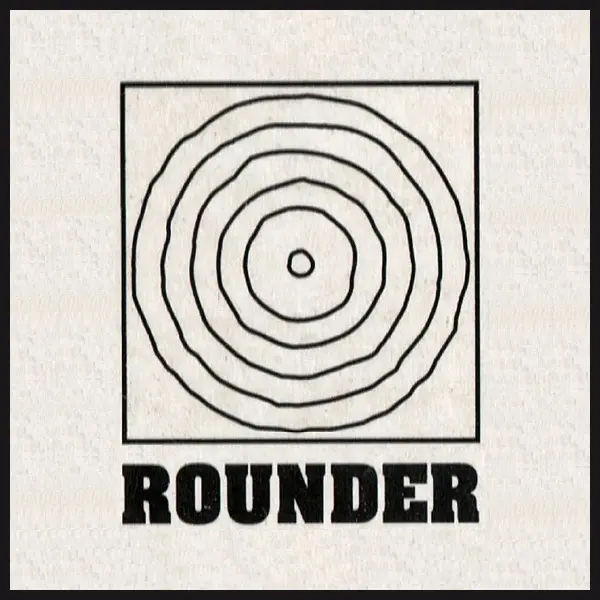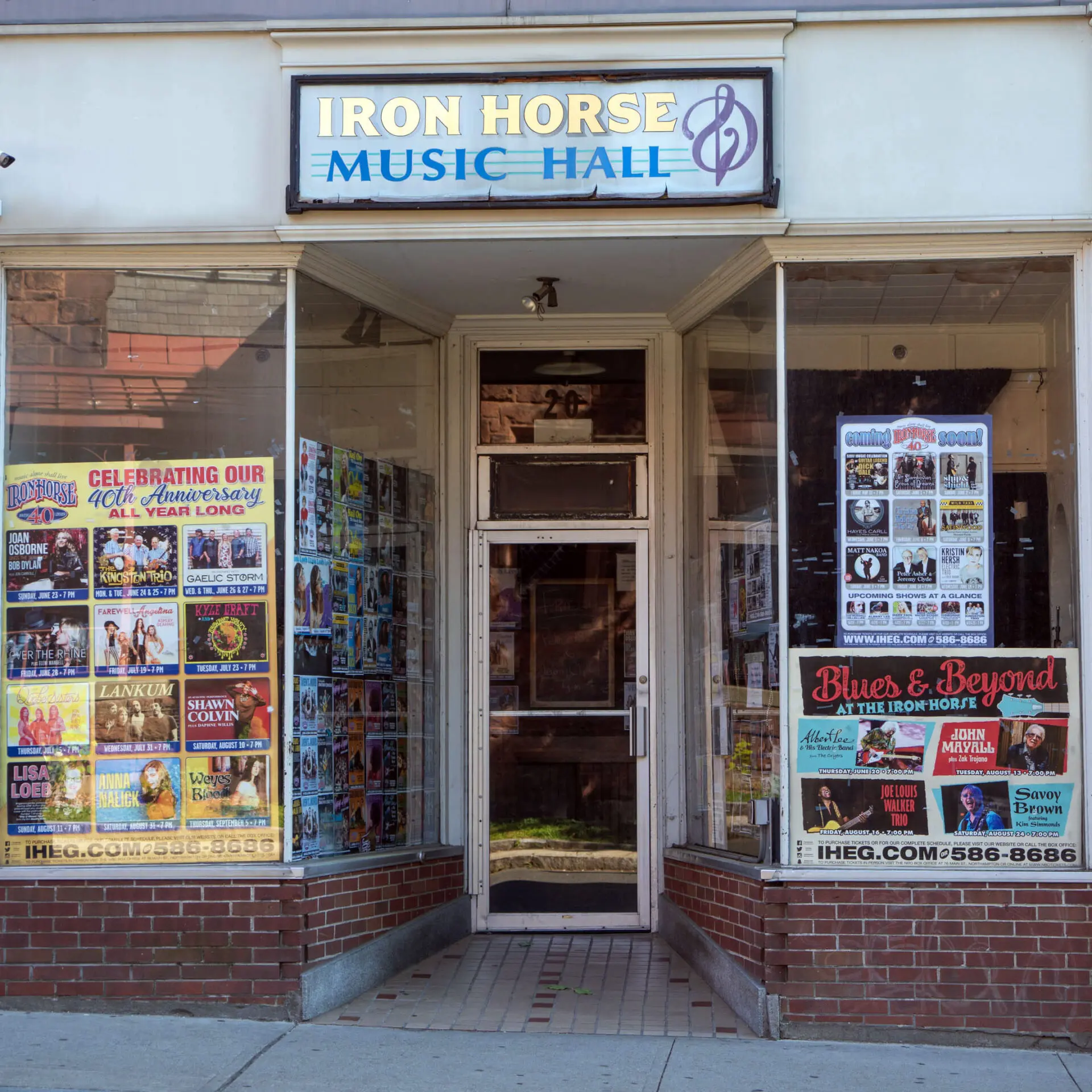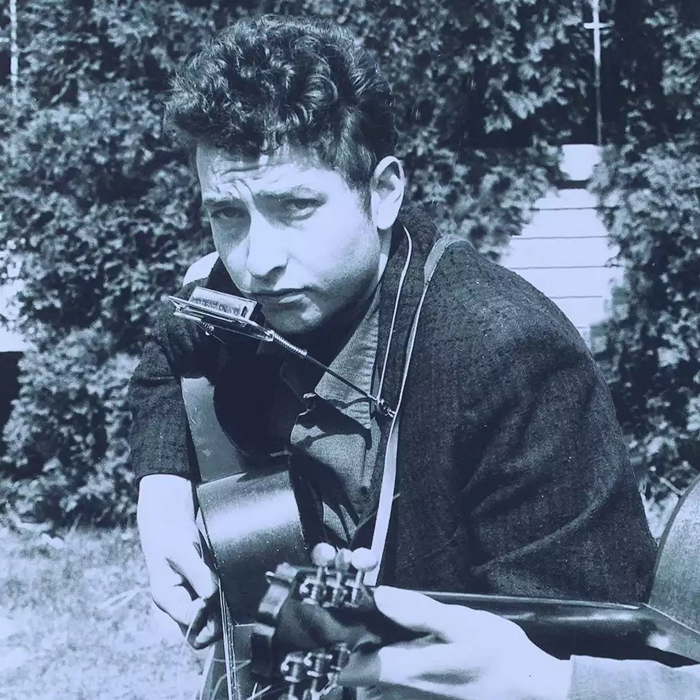Cheryl Wheeler
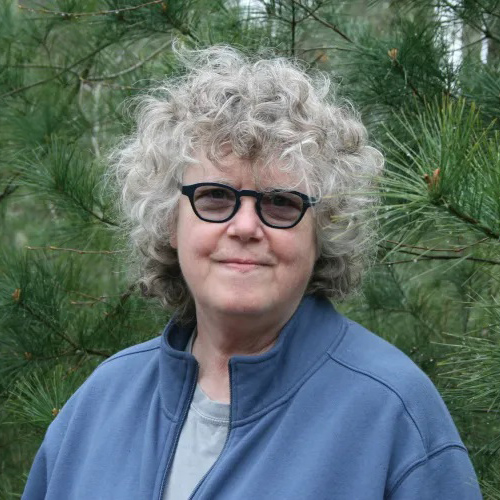
Throughout her 40-plus-year career, Cheryl Wheeler’s been likened to folk-blues icon Tom Rush for the wry wit in her material and her side-splitting anecdotes and asides during live sets. Like Rush, Wheeler’s almost as known for her comical on-stage comments as she is for her magnificent voice and beautifully crafted songs, many which she delivers with a heart-wrenching poignancy that can leave listeners in tears.
“If Wheeler never picked up an instrument, she could have easily become a comedian,” wrote the Rutland Herald’s George V. Nostrand in a 2016 profile. “Fortunately for us, she does both. Because, after the jokes, stories and self-deprecating comments have people rolling in the aisles, she starts singing and her voice is spellbinding.” Asked if she’d rather make audiences laugh or cry, Wheeler said that balancing the two is important. “I have no preference,” she told Lauren Daley of The Boston Globe in 2018. “I just hope the audience feels. People need to feel sad sometimes. But there’s so much funny stuff in the world, it’s hard not to point it out.”
OVERVIEW
Like fellow singer-songwriter Dar Williams, Wheeler wasn’t born or raised in New England but she’s made the region her home for the majority of her adult life and is as associated with the six-state area as New England natives Patty Griffin, Lori McKenna and Ellis Paul. With her salt-and-pepper hair, glasses and simple stage garb – most often a t-shirt, casual slacks and Crocs – she’s maintained an unassuming, down-to-earth presence despite the substantial following she’s established across the US since her years on the New England folk circuit in the late ‘70s and early ‘80s.
Her songs, the themes of which range from love and break-ups to politics and religion, have been covered by a number of other acclaimed artists including Bette Midler, Garth Brooks, Peter, Paul and Mary, Kenny Loggins, Holly Near, Juice Newton, Maura O’Connell, Melanie, Suzy Bogguss, Kathy Mattea, Sylvia and Dan Seals. “I never wrote music for anybody else,” she told Jennifer Whitlock of The Morning Call in 1996, noting that she made one exception: writing an extra verse for her song “I Know This Town” when Bette Midler’s management asked her to do so. “Other than that, [other singers] just heard my music and wanted to sing it. And that’s great. I make money if they do well. But more than that, it’s wonderful to have a singer you respect singing your song.”
Since 1983, while touring extensively across the US and becoming a staple at folk clubs and festivals, Wheeler’s recorded nine full-length albums and two EPs. In 2007 and 2008, UMass Boston’s WUMB placed her at #2 in their Top Folk Singers list – Bob Dylan being #1 – and in 2014 she was inducted into the Rhode Island Music Hall of Fame.
MUSICAL BEGINNINGS
Born July 10, 1951, Wheeler was raised in the tiny town of Timonium, Maryland (about 10 miles outside Baltimore) and started playing ukelele at age 10 after rescuing one that a friend of hers was throwing away. “The summer of fourth grade, my friend was cleaning out her attic,” she told The Boston Globe’s Daley. “She put a broken plastic ukulele in the trash pile and that was my start. I picked it up and started playing. After a year, I got a real ukulele.”
Shortly after starting to learn the instrument, Wheeler made her first foray into songwriting by putting her own melodies to verses in the popular children’s book The Golden Book of Poetry (Simon & Schuster, 1949). “I would sit on the floor and sing the poems,” she told George Lenker in a 2019 interview for MassLive. “The first one in there was ‘If I Were a One-legged Pirate’ and I can still remember the melody I made up.”
She began playing guitar in middle school, learning the basics from a friend in her neighborhood, and she began writing original material when she was a student at Dulaney High School; in her senior year, she began performing live. After graduation, she finished two years at a local community college before transferring to Coker College in South Carolina in the fall of 1971; she left in the spring of 1972. Asked if she walked away so suddenly to pursue a career in music, she said that wasn’t the main reason. “I quit in the spring of ’72, but I didn’t quit thinking,” she told MassLive’s Lenker. “I quit because I was in 15th grade and enough was enough already.”
After waiting tables in a steakhouse for about a week – which she now calls “a terrible mistake” since she hated the job and wasn’t cut out for it – she decided to give music a try full time. For the next several years, she focused on singing and songwriting while honing her skills at open-mic nights and as many paying gigs as she could land around Baltimore and Washington, DC.
MOVE TO RHODE ISLAND, EARLY APPEARANCES, JONATHAN EDWARDS
By 1976, 25-year-old Wheeler was planning to relocate to Nashville but before she did she visited a friend who was living in Providence, Rhode Island, where she wound up establishing her career and becoming a longtime resident. “My best friend from college, Michael, had moved up to Providence,” she said in the MassLive interview. “I was just coming into the fact that I was gay. My mom had passed away and my father had happily remarried, but I didn’t know how to introduce the gay thing to this whole new family. So I moved to Providence because I could just stay with Michael and get out of Dodge. And then I never left. Providence, to this day, and as tiny as it is, is still my favorite city.”
A songwriting and stage veteran by the time she arrived in the Ocean State, Wheeler quickly established an impressive fan base, particularly through her appearances at the Salt Theatre in Newport, where she opened for nationally renowned artists including Gordon Lightfoot, Jesse Winchester, Jonathan Edwards and Tom Rush. And it was through her friendship with Edwards’ keyboard player, Kenny White, that she landed her first big break, not as a singer-songwriter but as the bassist in Edwards’ touring band.
After White asked if she’d be willing to audition for the spot, Wheeler went out and bought a bass guitar so she could practice, never having played the instrument before. “To my complete astonishment, I got the gig,” she told MassLive. “But I knew I didn’t get it for my bass playing; I thought I must have gotten it for my singing. That was a real shot in the arm because I thought I might actually be a good singer if Jonathan Edwards was hiring me.”
EARLY RECORDINGS, CAPITOL SIGNING, CIRCLES AND ARROWS
In 1983, Wheeler self-released her first EP, the four-song Newport Songs, and in 1986 Providence-based North Star Records issued her first full album, a self-titled, 11-track collection produced by Edwards that included her original tune “Addicted,” which Dan Seals sent to #1 in the Billboard Hot Country Songs and Canadian RPM Country Tracks charts in 1988. In 1987, North Star released the four-song EP Live and Otherwise as a promotion – though the title is misleading since only one song (“Junk Food”) was recorded in front of a live audience – and Cypress Records issued her second LP, Half a Book, on which Edwards appears as a guest artist.
In 1990, Wheeler signed with Capitol Records and recorded her major-label debut, Circles and Arrows, a countrypolitan-style disc produced by Edwards and recorded mostly in Nashville. Interestingly, the song “Arrow” received significant airplay, particularly in the Boston area, but Wheeler hadn’t planned on including it on the album; she decided to so after being encouraged by one of her friends. “I didn’t like ‘Arrow’ that much. I woke up and wrote it fast and it came so easily that I didn’t think much of it,” she told The Boston Globe’s Daly. “When I went to make my first album, my friend Patsy said, ‘Put that Arrow song on there!’ and I said, ‘No, no, no.’ But I put it on and Jonathan Edwards called and said, ‘Love that song Arrow’!”
The album featured strings, horns and guests appearances by Vince Gill, Pam Tillis, Jerry Douglas and Mark O’Connor. Reviews were overwhelmingly positive, with critics noting the poppy “Hard Line to Draw,” the melancholic “Northern Girl” and the comical “Estate Sale” as standout tracks. The album also included the song “Aces,” which Grammy-winning singer-songwriter Suzy Bogguss sent to #9 in the Billboard Hot Country Songs chart in 1992.
ROUNDER RELEASES, NO PREVIOUS ALBUM, DIAS MUSIC
Capitol dropped the disc shortly after releasing it in January 1990 (because of “internal politics,” according to Wheeler’s official website) and Wheeler left the label, signing with Rounder Records (which rereleased Circles and Arrows in 1995). Over the next 12 years, she recorded four albums on Rounder’s Philo imprint: Driving Home (1993), Mrs. Pinocci’s Guitar (1995), Sylvia Hotel (1999) and Defying Gravity (2005). In 1995, Peter, Paul and Mary recorded her song “75 Septembers” (from Driving Home) for their LP LifeLines and in 1998 Rounder issued a concert video of Wheeler performing at the Iron Horse Music Hall, What Do I Care? I Don’t Have Any Kids Construction Company.
In 2003, Wheeler produced a two-CD, 51-song collection of songs that she’d performed live but had never put on an album, No Previous Record, making it available for free to members of her mailing list. The tracks are taken from her own archives and from recordings that audience members submitted for the special project. In 2008, she established her own label, Dias Music, on which she released her two most recent discs, Pointing at the Sun (2009) and Cheryl Wheeler Live at the Triple Door (2012, featuring Kenny White).
COMMENTS ON SONGWRITING
Asked how her songwriting has changed over the years, Wheeler said she’s gained a certain perspective and tends to edit herself more than before. “I used to write a lot of sad stuff; it’s harder to do that now,” she told The Boston Globe’s Daley. “When you’re 20, it’s easy to write, ‘I’m so cold and alone.’ When you’re older, you edit yourself: ‘Oh, shut up. A lot of people have problems.’”
“I wrote a lot of songs that if I looked back in my songbook, I wouldn’t have written now,” she told MassLive’s Lenker. “I’d be like ‘get over yourself.’ So I’m a little more picky now. And I don’t write nearly as much, which bums me out a little, but you can’t look a gift horse in the mouth.”
(by D.S. Monahan)

